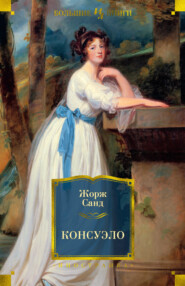По всем вопросам обращайтесь на: info@litportal.ru
(©) 2003-2024.
✖
The George Sand-Gustave Flaubert Letters
Настройки чтения
Размер шрифта
Высота строк
Поля
I don't know if I shall find you in Paris when I go there for my play. I have not arranged with the Odeon for the date of its performance. I am waiting for Duquesnel for the final reading. – And then I expect Pauline Viardot about the 20th of September, and I hope Tourgueneff too, won't you come also? it would be so nice and so complete!
In this hope which I will not give up, I love you and I embrace you with all my soul, and my children join me in loving you and summoning you.
G. Sand
CCXXXVI. TO GUSTAVE FLAUBERT, at Paris
Nohant, 25 October, 1872
Your letters fall on me like a rain that refreshes, and develops at once all that is germinating in the soil; they make me want to answer your reasons, because your reasons are powerful and inspire a reply.
I do not assume that my replies will be strong too; they are sincere, they issue from the roots of my being, like the plants aforesaid. That is why I have just written a paper on the subject that you raise, addressing myself this time TO A WOMAN FRIEND, who has written me also in your vein, but less well than you, of course, and a little from an aristocratically intellectual point of view, to which she has not ALL THE RIGHTS SHE DESIRES.
My roots, one can't extirpate them, and I am astonished that you ask me to make tulips come from them when they can answer you by producing only potatoes. Since the beginning of my intellectual blooming, when, studying quite alone at the bedside of my paralyzed grandmother, or in the fields at the times when I entrusted her to Deschartres, I asked myself the most elementary questions about society; I was no more advanced at seventeen than a child of six, not as much! thanks to Deschartres, my father's teacher, who was a contradiction from his head to his feet, much learning and little sense; thanks to the convent, into which they stuck me, God knows why, as they believed in nothing; thanks also to a purely Restoration surrounding in which my grandmother, a philosopher, but dying, breathed her last without resisting further the monarchical current.
Then I read Chateaubriand, and Rousseau; I passed from the Gospels to the Contrat social. I read the history of the Revolution written by the pious, the history of France, written by philosophers; and, one fine day, I made all that agree like light proceeding from two lamps, and I had PRINCIPLES. Don't laugh, very candid, childish principles which have remained with me through all, through Lelia and the romantic epoch, through love and doubt, enthusiasm and disenchantments. To love, to make sacrifices, only to reconsider when the sacrifice is harmful to those who are the object of it, and to sacrifice oneself again in the hope of serving a real cause, love.
I am not speaking here of personal passion, but of love of race, of the widening sentiment of self-love, of the horror of THE ISOLATED MOI. And that ideal of JUSTICE of which you speak, I have never seen it apart from love, since the first law on which the existence of a natural society depends, is that we shall serve each other mutually, like the bees and the ants. This concurrence of all to the same end, we have agreed to call instinct among beasts, and it does not matter, but among men, the instinct is love; he who withdraws himself from love, withdraws himself from truth, from justice.
I have experienced revolutions, and I have seen the principal actors near to; I have seen the depth of their souls, I should say the bottom of their bag: NO PRINCIPLES! and no real intelligence, no force, nor endurance. Nothing but means and a personal end. Only one had principles, not all of them good, but in comparison with their integrity, he counted his personality for nothing: Barbes.
Among artists and literary men, I have found no depth. You are the only one with whom I have been able to exchange other ideas than those of the profession. I don't know if you were at Magny's one day when I said to them that they were all GENTLEMEN. They said that one should not write for ignoramuses. They spurned me because I wanted to write only for them, as they are the only ones who need anything. The masters are provided for, are rich, satisfied. Imbeciles lack everything, I am sorry for them. Loving and pitying are not to be separated. And there you have the uncomplicated mechanism of my thought.
I have the passion for goodness and not at all for prejudiced sentimentality. I spit with all my might upon him who pretends to hold my principles and acts contrary to them. I do not pity the incendiary and the assassin who fall under the hand of the law; I do pity profoundly the class which a brutal, degenerate life without upward trend and without aid, brings to the point of producing such monsters. I pity humanity, I wish it were good, because I cannot separate myself from it; because it is myself; because the evil it does strikes me to the heart; because its shame makes me blush; because its crimes gnaw at my vitals, because I cannot understand paradise in heaven nor on earth for myself alone.
You ought to understand me, you who are goodness from head to foot.
Are you still in Paris? It has been such fine weather that I have been tempted to go there to embrace you, but I don't dare to spend the money, however little it may be, when there is so much poverty. I am miserly because I know that I am extravagant when I forget, and I continually forget. And then I have so much to do!..I don't know anything and I don't learn anything, for I am always forced to learn it over again. I do very much need, however, to see you again, for a little bit; it is a part of myself which I miss.
My Aurore keeps me very busy. She understands too quickly and we have to take her at a hard gallop. To understand fascinates her, to know repels her. She is as lazy as monsieur, her father, was. He has gotten over it so well that I am not impatient. She promises me to write you a letter soon. You see that she does not forget you. Titite's Punch has lost his head, literally, because he has been so embraced and caressed. He is loved as much without his head; what an example of fidelity in misfortune! His stomach has become a receptacle where playthings are put.
Maurice is deep in his archeological studies, Lina is always adorable, and all goes well except that the maids are not clean. What a road the creatures have still to travel who do not keep themselves clean!
I embrace you. Tell me how you are getting on with Aisse, the Odeon and all that stuff you are busy about. I love you; that is the end of all my discourses.
G. Sand
CCXXXVII. TO GEORGE SAND
Dear master,
In your last letter, among the nice things that you say to me, you praise me for not being "haughty"; one is not haughty with what is high. Therefore, in this aspect, you cannot know me. I object.
Although I consider myself a good man, I am not always an agreeable gentleman, witness what happened to me Thursday last. After having lunched with a lady whom I had called "imbecile," I went to call on another whom I had said was "ninny"; such is my ancient French gallantry. The first one had bored me to death with her spiritualistic discourses and her pretensions to ideality; the second outraged me by telling me that Renan was a rascal. Observe that she confessed to me that she had not read his books. There are some subjects about which I lose patience, and, when a friend is slandered before my very face, the savage in my blood returns, I see red. Nothing more foolish! for it serves no purpose and hurts me frightfully.
This vice, by the way, BETRAYING ONE'S FRIENDS IN PUBLIC, seems to me to be taking gigantic proportions!
CCXXXVIII. TO GUSTAVE FLAUBERT
Nohant, 26 October, 1872
Dear friend,
Here is another chagrin for you; a sorrow foreseen, but none the less distressing. Poor Theo! I pity him deeply, not because he is dead, but because he has not been really living for twenty years; and if he had consented to live, to exist, to act, to forget a bit his intellectual personality so as to conserve his material personality, he could have lived a long time yet, and have renewed his resources which he was too much inclined to make a sterile treasure. They say that he suffered greatly from hardship during the siege. I understand it, but afterward? why and how?
I am worried at not having had news from you for a long time. Are you at Croisset? You must have been in Paris for the funeral of this poor friend. What cruel and repeated separations! I am angry with you for becoming savage and discontented with life. It seems to me that you regard happiness too much as a possible thing, and that the absence of happiness which is our chronic state, angers you and astonishes you too much. You shun friends, you plunge into work, and reckon ass lost the time you might employ in loving or in being loved. Why didn't you come to us with Madame Viardot and Tourgueneff? You like them, you admire them, you know that you are adored here, and you run away to be alone. Well, how about getting married? Being alone is odious, it is deadly, and it is cruel also for those who love you. All your letters are unhappy and grip my heart. Haven't you any woman whom you love or by whom you would be loved with pleasure? Take her to live with you. Isn't there anywhere a little urchin whose father you can believe you are? Bring him up. Make yourself his slave, forget yourself in him.
What do I know? To live in oneself is bad. There is intellectual pleasure only in the possibility of returning to it when one has been out for a long time; but to live always in this Moi which is the most tyrannical, the most exacting, the most fantastic of companions, no, one must not. – I beg you, listen to me! You are shutting up an exuberant nature in a jail, you are making out of a tender and indulgent heart, a deliberate misanthrope, – and you will not make a success of it. In short, I am worried about you, and I am saying perhaps some foolishness to you; but we live in cruel times and we must not undergo them with curses. We must rise above them with pity. That's it! I love you, write to me.
I shall not go to Paris until after a month's time to put on
Mademoiselle La Quintinie. Where shall you be?
CCXXXIX. TO GEORGE SAND
Monday night, 28 October, 1872
You have guessed rightly, dear master, that I had an increase of sorrow, and you have written me a very tender, good letter, thanks; I embrace you even more warmly than usual.
Although expected, the death of poor Theo has distressed me. He is the last of my intimates to go. He closes the list. Whom shall I see now when I go to Paris? With whom shall I talk of what interests me? I know some thinkers (at least people who are called so), but an artist, where is there any? For my part, I tell you he died from the "putrescence of modern times." That is his word, and he repeated it to me this winter several times: "I am dying of the Commune," etc.
The 4th of September has inaugurated an order of things in which people like him have nothing more in the world to do. One must not demand apples of orange trees. Artisans in luxury are useless in a society dominated by plebeians. How I regret him! He and Bouilhet have left an absolute void in me, and nothing can take their place. Besides he was always so good, and no matter what they say, so simple. People will recognize later (if they ever return seriously to literature), that he was a great poet. Meanwhile he is an absolutely unknown author. So indeed is Pierre Corneille.
He hated two things: the hate of the Philistines in his youth, that gave him his talent; the hate of the blackguards in his riper years, this last killed him. He died of suppressed fury, of wrath at not being able to say what he thought. He was OPPRESSED by Girardin, by Fould, by Dalloz, and by the first Republic. I tell you that, because I HAVE SEEN abominable things and I am the only man perhaps to whom he made absolute confidences. He lacked what was the most important thing in life for him and for others: CHARACTER. That he failed of the Academy was to him a dreadful chagrin. What weakness! and how little he must have esteemed himself! To seek an honor no matter what, seems to me, besides, an act of incomprehensible modesty.
I was not at his funeral owing to the mistake of Catulle Mendes, who sent me a telegram too late. There was a crowd. A lot of scoundrels and buffoons came to advertise themselves as usual, and today, Monday, the day of the theatrical paper, there must be bits in the bulletins, THAT WILL MAKE COPY. To resume, I do not pity him, I ENVY HIM. For, frankly, life is not amusing.
No, I don't think that HAPPINESS IS POSSIBLE, but certainly tranquillity. That is why I get away from what irritates me. A trip to Paris is for me now, a great business. As soon as I shake the vessel, the dregs mount and permeate all. The least conversation with anyone at all exasperates me because I find everyone idiotic. My feeling of justice is continually revolted. They talk ONLY of politics and in what a fashion! Where is there a sign of an idea? What can one get hold of? What shall one get excited about?
I don't think, however, that I am a monster of egoism. My Moi scatters itself in books so that I pass whole days without noticing it. I have bad moments, it is true, but I pull myself together by this reflection: "No one at least bothers me." After that, I regain my balance. So I think that I am going on in my natural path; am I right?
As for living with a woman, marrying as you advise me to do that is a prospect that I find fantastic. Why? I don't know. But it is so. Explain the riddle. The feminine being has never been included in my life; and then, I am not rich enough, and then, and then – …I am too old, and too decent to inflict forever my person on another. There is in me an element of the ecclesiastical that people don't know. We shall talk about that better than we can write of it.
I shall see you in Paris in December, but in Paris one is disturbed by others. I wish you three hundred performances for Mademoiselle La Quintinie. But you will have a lot of bother with the Odeon. It is an institution where I suffered horribly last winter. Every time that I attempted to do anything they dished me. So, enough! enough! "Hide thy life," maxim of Epictetus. My whole ambition now is to flee from bother, and I am sure by that means never to cause any to others, that is much.
I am working like a madman, I am reading medicine, metaphysics, politics, everything. For I have undertaken a work of great scope, which will require a lot of time, a prospect that pleases me.
Ever since a month ago, I have been expecting Tourgueneff from week to week. The gout is delaying him still.
CCXL. TO GUSTAVE FLAUBERT, at Croissset
Nohant, 22 November, 1872
I don't think that I shall go to Paris before February. My play is postponed on account of the difficulty of finding the chief actor. I am content about it, for the idea of leaving Nohant, my occupations, and the walks that are so lovely in this weather, didn't look good to me at all; what a warm autumn and how good for old people! Two hours distant from here, we have a real wilderness, where, the next day after a rain, it is as dry as in a room, and where there are still flowers for me, and insects for Maurice. The little children run like rabbits in the heather which is higher than they are. Heavens! how good it is to be alive when all one loves is living and scurrying around one. You are the only BLACK SPOT in my heart-life, because you are sad and don't want to look at the sun. As for those about whom I don't care, I don't care either about the evils or the follies they can commit against me or against themselves. They will pass as the rain passes. The eternal thing is the feeling of beauty in a good heart. You have both, confound it! you have no right not to be happy. – Perhaps you ought to have had in your life the INCLUSION OF THE FEMININE SENTIMENT which you say you have defied. – I know that the feminine is worth nothing; but, perhaps, in order to be happy, one must have been unhappy.
I have been, and I know enough about it; but I forget so well. Well, sad or gay, I love you and I am still waiting for you, although you never speak of coming to see us, and you cast aside the opportunity emphatically; we love you here just the same, we are not literary enough for you here, I know that, but we love, and that gives life occupation.
Is Saint-Antoine finished, that you are talking of a work of great scope? or is it Saint-Antoine that is going to spread its wings over the entire universe? It could, the subject is immense. I embrace you, shall I say again, my old troubadour, since you have resolved to turn into an old Benedictine? I shall remain a troubadour, naturally.

















